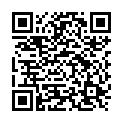|
|
|
| Module code: BSP-1 |
|
|
2V+2U (4 hours per week) |
|
5 |
| Semester: 1 |
| Mandatory course: yes |
Language of instruction:
German |
Assessment:
BSP-1.1: Module work (MA) (bn)
BSP-1.2: /
[updated 20.05.2020]
|
BSP-1 (P322-0017) Social work and early childhood, Bachelor, ASPO 01.10.2017
, semester 1, mandatory course
BSP-1 (P322-0017) Social work and early childhood, Bachelor, ASPO 01.10.2019
, semester 1, mandatory course
|
60 class hours (= 45 clock hours) over a 15-week period.
The total student study time is 150 hours (equivalent to 5 ECTS credits).
There are therefore 105 hours available for class preparation and follow-up work and exam preparation.
|
Recommended prerequisites (modules):
None.
|
Recommended as prerequisite for:
|
Module coordinator:
Prof. Dr. Tamara Marksteiner |
Lecturer: Prof. Dr. Tamara Marksteiner
[updated 26.08.2019]
|
Learning outcomes:
After successfully completing this course, students will:
- be able to describe the university as an environment and organization.
- be able to name and identify basic epistemological approaches and paradigms, as well as types of (empirical) research.
- be able to distinguish between and classify theory, empiricism and practice, as well as their rationalities and different forms of knowledge.
- be able to differentiate between scientific and non-scientific texts according to specific criteria.
- have developed a general understanding of scientific work, thinking and reasoning.
In addition, students will:
- be able to work with relevant scientific literature (literature research, citing correctly, bibliographies and references, terminology, etc.).
- be able to describe the process and techniques involved in scientific work (from the formulating a problem to creating and presenting texts).
- be able to apply the basics of scientific writing and write their first scientific texts.
- be able to incorporate the principles of scientific work into their presentations.
[updated 20.05.2020]
|
Module content:
Lecture:
_ Universities in the educational and scientific system
_ Science and life, forms of knowledge
_ Theory, empiricism, practice
_ Discipline and profession
_ Paradigms and theoretical traditions
_ Epistemology and the philosophy of science
_ Types of research
_ Philosophy and the structure of the study program
_ Principles, methods and techniques of scientific work
Exercises:
_ Structuring your studies (e.g. time management)
_ Literature research (databases, library), creating a bibliography, excerpting
_ Organizing, analyzing and creating texts (outlines, questions, exposés, summaries, theses)
_ References and bibliographies
_ Speeches using media/presentation methods.
[updated 20.05.2020]
|
Teaching methods/Media:
Lecture, exercises, work in small groups, independent study
[updated 20.05.2020]
|
Recommended or required reading:
[still undocumented]
|


